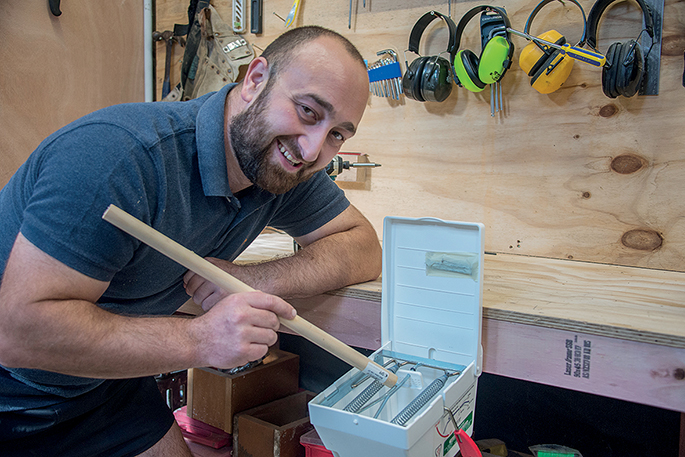A small, community group of passionate volunteers, run by its founder Adam Thompson, are doing their bit to support the Government aim to have New Zealand predator-free by 2050. Predator Free Cambridge works in the town, concentrating on the eradication of predators in the local area.
“It is important to differentiate between predators and pests,” says Adam. “Pests destroy plants, whereas predators are mammals that kill native birds, chicks and eggs.”
The predator culprits being targeted are possums, rats and mustelids (stoats, weasels and ferrets), with possums also responsible for native habit destruction.
“Before New Zealand was colonised, the ecosystem here consisted of native bush, native birds, fish, some reptiles and amphibians, and insects,” says Adam. “The only native mammals were bats and marine mammals. That ecosystem was perfectly balanced and NZ was rich in bird life."
All the other mammals found in NZ today have been introduced. Projects like Sanctuary Mountain Maungatautari are re-establishing that ecosystem successfully in a controlled, pest and predator-free environment, and as bird numbers increase there, they will fly to the Cambridge area.
“We are about not having a country over-run with predators and pests, so our amazing native birds can once again flourish,” says Adam.
Following on from Wellington’s initiative, where they have 4500 backyard rat trappers and a declining rat population, Adam would like to see 1500 backyard traps throughout Cambridge in the next five years. That would mean a trap in every fifth backyard in the town.
“Give it another five years after that,” says Adam. “And you would expect the rat population in the town to have reduced noticeably. From then on it is just a matter of maintaining the traps so they don’t come in from elsewhere.”
Adam and his team have working bees to make simple rat trap tunnels. Adam’s company, My Mortgage Ltd, sponsored the first 100 traps, and the group has hopefully secured alternative funding for more. Traps are free, but a donation can be paid towards building more traps. Adam uses other types of trap to catch possums and mustelids, as well as rats, on his rural property.
He will also have planted 8500 native trees on his land by the end of this year. This is something the public can assist with, and a list of suitable natives for different areas Waikato can be found by Google searching ‘DOC ecological restoration in the Waikato’.
“This whole project is about caring about something that is greater than yourself,” says Adam. “It’s good to be doing something as a community.”



0 Comments
Leave a Comment